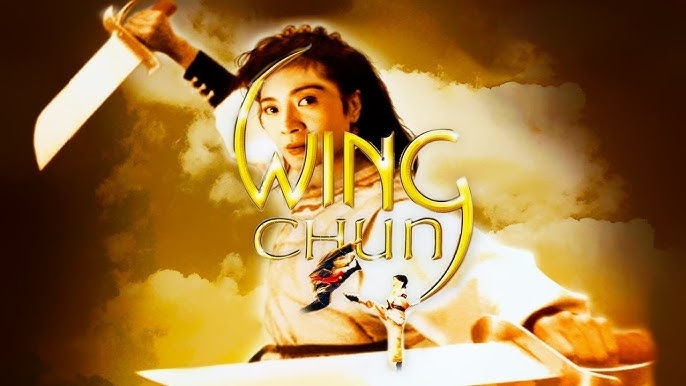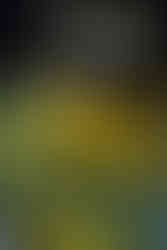Pirate Queen | Rita Chang-Eppig
- withitgirl
- Sep 26, 2025
- 6 min read

We recently had the opportunity to interview Rita Chang-Eppig about her acclaimed 2024 debut novel Deep as the Sky, Red as the Sea. Her journey to becoming a novelist began with a childhood fascination that would span multiple decades. Raised by her maternal grandparents, Chang-Eppig was immersed in martial arts novels and Chinese period dramas featuring powerful women which cultivated her interest in complex female characters who wielded power in male-dominated spaces.
Chang-Eppig's unique journey to fiction writing involved earning a PhD in psychology and working as a psychologist for several years before she pursued an MFA at NYU in her thirties.
Her background in psychology was crucial in authentically depicting Shek Yeung's Complex PTSD. Rita's dedication also involved thorough research into 19th-century Chinese maritime culture, covering aspects from shipbuilding to religious practices, including the worship of Mazu, the sea goddess. Her agent described her debut novel as a "unicorn" due to its unconventional approach, which initially led to rejections but ultimately became its greatest strength.

Share with us how you developed an interest in writing the book.
I first read about the real-life “pirate queen” who ruled the South China Sea when I was eight. It was a brief mention in a children’s book that basically said, “Her husband had a fleet, and she helped out.” The book didn’t even mention the historical figure by name, referring to her instead as “Zheng’s wife.” Certain that there was more to her story, I began seeking out information about her. Her real name was Shek Yeung, and she had survived human trafficking to become the commander of the largest pirate fleet in China (and, by some counts, the world). After I started writing seriously, I realized there was a potential novel here. Deep as the Sky, Red as the Sea is my fictional telling of this smart, complicated, and deeply flawed woman’s life.

Around 2016, Shek Yeung’s name started appearing on American social media. Before that, I had only heard her mentioned by people in Taiwan or China. At the same time, I began my MFA program and was considering topics that could keep me engaged for many years. It might seem obvious, but writing a novel takes a long time! I realized I wouldn’t complete a project of this magnitude unless I was completely captivated by the story or the character. So when I saw her name on social media, I thought, yes. She had already held my interest for thirty years, so I was confident she would continue to do so while I wrote my novel. And she did.

I was so terrified of getting stuff wrong in the novel that I did a ton of research–not only about her life but also 19th century Chinese maritime culture, everything from the ships they sailed to the foods they ate to the gods they worshipped. I learned that most pirates back then worshipped the sea goddess Mazu, which translates to “maternal ancestor.” I grew up around Mazu temples in Taiwan, but I never realized that she played such an important role in the lives of my characters. It was really lovely to go back to Taiwan and see those temples through this new lens. I observed and participated in rituals; it was an incredibly rich experience.
Please share some information about yourself, including your background, upbringing, education, and mentors?
In many ways, my maternal grandparents raised me. My grandfather had shelves upon shelves of martial arts novels, a popular genre in Asia that features ordinary humans who, through intense training, become masters with otherworldly powers. As a child, I devoured those books. From them, I learned to write a good fight scene. Because what would be the point of a book about martial arts masters or pirates if it didn’t have fight scenes?

My grandmother loved Chinese period dramas. I have fond memories of sitting in front of the TV with her, listening to her explain what was happening on the screen. One of my favorites was a drama about the Chinese empress Wu Zetian, who had a reputation for being both brilliant and ruthless. Those afternoons with my grandmother cultivated in me an interest in powerful women, in particular women who wielded power in spaces not usually very friendly to women.
I didn’t start writing fiction in earnest until I was in my thirties, so all of these little interests of mine remained secret. I got my PhD in psychology and then worked for many years as a psychologist. But my experience in the field turned out to be invaluable when I started writing Shek Yeung because the historical figure went through so much trauma–these days we would probably call it Complex PTSD. Simply writing her as this #girlboss would have been doing her a disservice.

Describe a personal experience that changed your viewpoint.
A few years ago, I decided to learn fire-spinning because I wanted to push myself outside my comfort zone. I figured that whipping big (and surprisingly loud) balls of fire repeatedly past my own head would do it. The thing about fire-spinning is that you can’t half-ass it. If you’re attempting a trick and you don’t put enough force into it, the chain will lose tension and that big ball of fire is going to land right on your head or arm or back. You have to commit. Trust that physics will do the rest of the work for you. One day, while I was practicing, I had an epiphany: the same applies to writing. You can tell when an author isn’t committing. Maybe they find earnestness embarrassing, so they decide to downplay emotions in their writing. Or maybe they don’t trust themselves to write action scenes, so they sidestep them altogether. Of course there are times when it’s important to dial things back, but as a general rule, it’s easier to overwrite and then dial things back than to not have enough on the page in the first place.

Which writers or artists have influenced you? Any key books or recommended reads?
Aside from my grandfather’s martial arts novels, most of which unfortunately haven’t been translated to English (to my knowledge), I was raised on a steady diet of martial arts movies. Way before Crouching Tiger, Hidden Dragon blew up in the States, there were iconic Hong Kong films like Wing Chun, starring Michelle Yeoh. Honestly, anything with Michelle Yeoh is a must-watch.
Sometimes people assume I was influenced by the Pirates of the Caribbean movies. I want to state for the record that I actually hated the way Shek Yeung was depicted in the series. The way she was written and dressed–the whole thing was just lazy. If anything, I wanted to write against the depictions of her I’d seen in American media.
Here are some books that changed the way I thought about craft, in no particular order:
Mariana Enriquez, Things We Lost in the Fire
Karen Russell, Vampires in the Lemon Grove
Jesmyn Ward, Sing, Unburied, Sing
Umberto Eco, The Name of the Rose
Seth Fried, The Great Frustration
Shirley Jackson, The Haunting of Hill House
Daphne Palasi Andreades, Brown Girls
Charles Yu, Interior Chinatown
Jeanette Winterson, The Passion
ZZ Packer, Drinking Coffee Elsewhere
Are you working on something new?
I am! I just submitted the latest draft to my agent, so I’m on tenterhooks right now 😅. It’s a speculative novel set in the near future about a woman searching for her twin, an agender character who disappeared years ago on a scientific expedition. It’s a little trippy and very different from my first book.

What guidance would you offer to young writers looking for a publisher, and what challenges did you encounter?
Expect rejections, but don’t expect rejections to be the end. One of the first agents I talked to said that she couldn’t imagine my book getting published because it wasn’t like anything else that was out there. But the unconventionality is actually what drew a lot of people in: my current agent called it a "unicorn," and since its publication, I’ve had people say kind things to me like “I didn’t know a novel could be like this.”
Even if the book does get rejected, it’s not necessarily the end. A friend of mine wrote a book that was rejected by every publisher the first time her agent submitted it. She wrote a second book, which became a bestseller. Wouldn’t you know it: the same people who rejected her first book now wanted to publish it since she had established a name for herself. I’m not saying you should keep spamming agents/publishers with the same book if they’ve already rejected it. But don’t feel too discouraged, either. You never know what will happen in the future.
Anything else.
Thank you, withitgirls and here is a playlist of music I am listening to.
Additional Information
Rita Chang-Eppig received her MFA from NYU. Her stories have appeared in The Best American Short Stories 2021 (selected by Jesmyn Ward), McSweeney’s Quarterly Concern, One Story, and many other places. She lives in California.
Rita Chang-Eppig on Instagram: @rche_types
Purchase the Book from the Publisher, Bloomsbury, also find used copies, ebook, or ask your local library !

© 2000-2025 withitgirl. All rights reserved. We appreciate your feedback!

























Comments